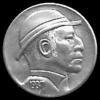-
Recently Browsing 0 members
- No registered users viewing this page.
-
Similar Content
-
- 44 replies
- 1,814 views
-
- 24 replies
- 1,257 views
-
- 16 replies
- 1,099 views
-
- 10 replies
- 2,150 views
-
- 72 replies
- 4,325 views
-






Recommended Posts